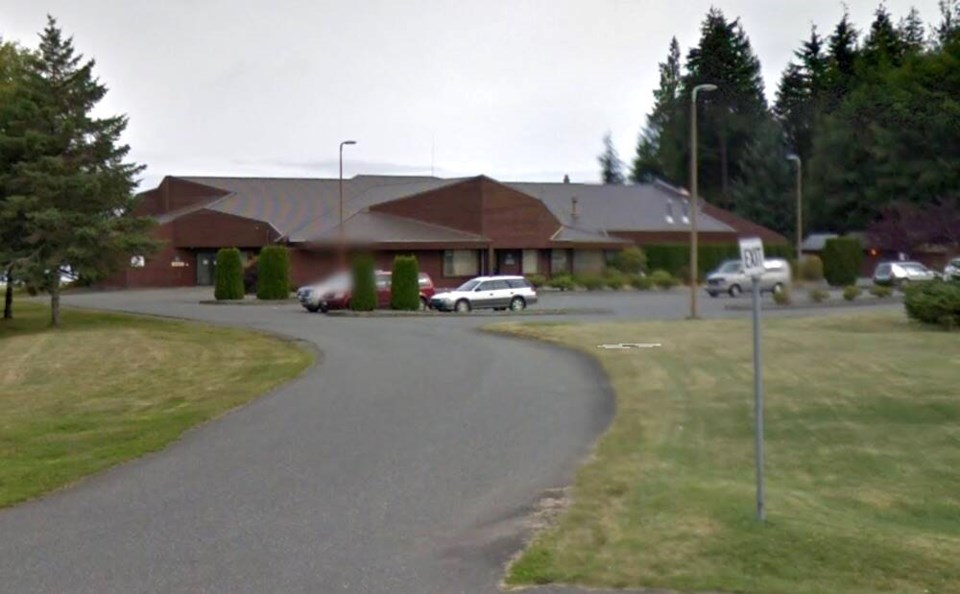Port McNeill and District Hospital’s emergency department will be closed until 7 a.m. Monday due to a nurse shortage, and the hospital will not take new admissions until then, Island Health said.
Anyone experiencing a medical emergency over the weekend is being advised to call 911 or go to Port Hardy Hospital.
The health authority said it has protocols with B.C. Emergency Health Services to ensure patients are transported to the appropriate site.
Island Health said there’s a staff shortage throughout the Mt. Waddington area and it’s actively recruiting to fill nursing vacancies in the region, including undertaking short-term measures to increase staffing.
“The staffing challenges experienced on the north Island are not unique to that region, or even Island Health,” said the health authority. “There is a national shortage of health-care providers, affecting all provider groups, including nursing.”
The effects of that shortage are amplified in rural areas where baseline staffing numbers are already lower, said Island Health.
B.C. Nurses’ Union vice-president Adriane Gear said in rural areas such as Port McNeill and Port Hardy, even one nurse down can be too many and it’s a two-hour drive to the hospital in Campbell River, where nursing shortages are also a challenge.
At Port McNeill and District Hospital, there are two registered nurses as a baseline, said Gear, and they have been asking for a third for some time. The acuity and volume of patients has been growing “exponentially,” she said.
Some nurses who have travelled to Port McNeill to help relieve the current staff have complained of a lack of suitable accommodations provided by the health authority, and a lack of compensation for mileage, said Gear. Newly graduated nurses are eager to go, but complain there are not enough senior nurses to support them, she said
It’s a crisis throughout the province that Gear doesn’t see getting better any time soon. She said despite many good initiatives by the B.C. government, “none of it is a magic bullet.”
In February the province announced it is adding 602 new nursing seats to public post-secondary institutions — in addition to about 2,000 existing seats — in a move the B.C. Nurses’ Union called a “promising step” toward addressing a staffing crisis in health-care.
The 602 new spaces include seats for 362 registered nurses, 40 registered psychiatric nurses, 20 nurse practitioners and 180 licensed practical nurses. There’s also a drive to train current nurses to a higher level of practice — licensed practical nurses to registered nurses and registered nurses to nurse practitioners, for instance.
Funding for the initiative comes from $96 million committed over three years as part of last year’s budget to expand post-secondary education and training capacity for health professionals.
“It’s going to take many initiatives and it’s going to take some time before we’re going to see some improvement,” said Gear, a former union representative for the Island.
Gear said about 500 qualified entrants are on a wait list for nursing training spaces, but given the nursing shortage, there aren’t enough instructors or clinical placement spots to accommodate them. If a complex medical surgical unit requiring 10 nurses only has five, “how do you adequately supervise and train and mentor a student?”
The BCNU recently cited the need for more retention incentives and initiatives to employ internationally trained nurses, something the province says it’s working on.
Gear said the shortage of family doctors also has an impact on nurses because patients who didn’t get primary care —especially during the pandemic — are ending up in hospital with complications from manageable diseases or diseases that could have been caught with proper screening.
Port McNeill and District Hospital was last closed to admissions and emergency visits the first weekend in March, after one of its three doctors called in sick.
Dr. Prean Armogam, who has a private family practice and serves neighbouring remote and rural communities as well as doing weekend on-call shifts at the hospital, says the situation remains “dire.”
Armogam said this weekend’s closure was announced late Thursday without a plan for all patients to be contacted in time.
Armogam said there are few ways to inform people travelling from remote areas and Indigenous communities, adding there’s a lack of planning around managing limited resources. “And while the hard closure is reported as a nursing shortage,” he said, “the doctor situation is also dire.”
Those with questions about whether their medical situation requires an ER visit can get confidential health information and advice from a registered nurse toll free by calling HealthLink BC at 811 any time of the day or night, seven days a week.



